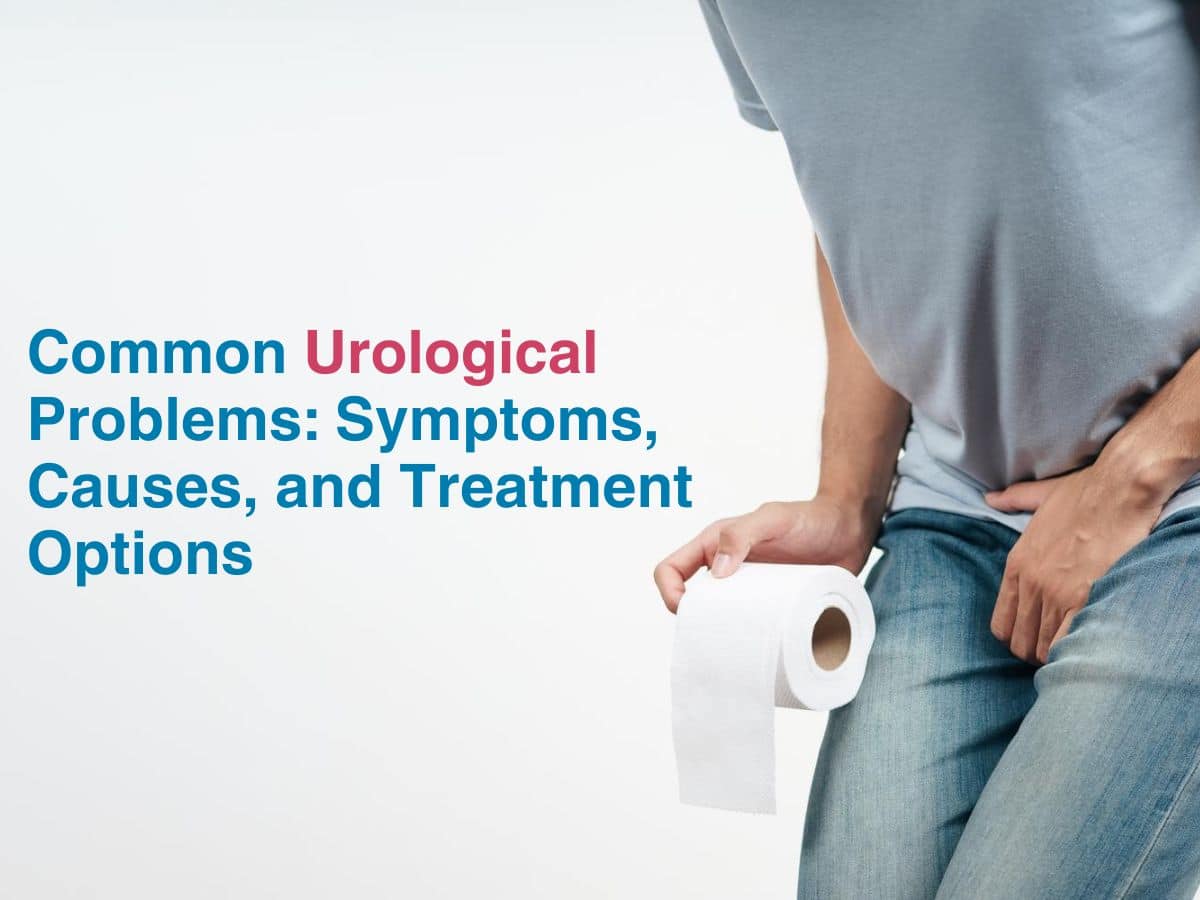
Common Urological Problems: Symptoms, Causes, and Treatment Options

The spectrum of issues that the genitourinary tract can face range from relatively simple ones like urinary incontinence at one end to not being able to birth or father children on the other end. Urologists are more specialised in their approach and work only with the ureters, urethra, kidney and the bladder respectively, along with the adrenal glands and reproductive apparatus too. So, they are adept surgeons this way.
Urological Issues In Men And Women
Now that we know what a urologist can do, let us look at all the conditions they can treat:
- Kidney stones
- Urinary tract infections or UTIs
- Incontinence
- Hematuria
- Benign Prostatic Hyperplasia which is not cancerous or malignant
- Prostate Cancer
- Interstitial Cystitis that affects the bladder.
- Erectile Dysfunction
- Pelvic organ prolapse especially in women who have given birth to children or due to cancer treatment or weightlifting.
- Some people are born with congenital disorders, so urologists will check them out too.
Causes Of Urological Disorders
The causes may be due to infections by pathogenic agents, or cancerous growth, or a physical change in the way the organs are packed in the abdominal cavity, among other causes. Some others include being diabetic, hypertensive, having kidney related issues, renal failure or having a genetic predisposition for some conditions respectively.
Symptoms Of Urological Problems
Watch out for these symptoms:
- Painful peeing
- Feeling the urge to pee very often
- Trouble while having sex
- Infertility related issues
- Incontinence- peeing a teensy bit when you laugh, sneeze or lift objects
- Pelvic pain may be present too
- Blood in your urine or having foamy urine
Treatment Options For Urological Problems
The treatment approaches are obviously going to be different for each specific condition. Some of them are as follows:
- Antibiotics or antifungal agents for infections
- Surgery may be recommended to remove any tumours or benign growths
- Treating incontinence with botox injections
- Kidney stones can be broken down using lasers or shock therapy and placing shunts
- Core strengthening exercises are recommended
- Making some lifestyle changes can also help
Conclusion
As mentioned above, when you have pain or some symptoms, please do not hesitate to go consult a good urologist for medical advice and relevant treatment. One of the issues faced is the fact that people postpone treatment, which can make symptoms and pain worse than before. Another issue commonly faced by women is pain during sex and incontinence due to prolapse and loss of core strength. So, making lifestyle changes like exercising, eating well, training your bladder to pee at specific intervals and drinking lots of water can help. But remember- overhydration is also a thing, so don’t overdo it okay?
Frequently Asked Questions
Can lifestyle changes help with managing urological problems?
Yes, by doing Kegel exercises and training your bladder to not pee randomly, you can get better in a few months. Diet should include good amounts of produce, fibre and water too.
How can I prevent urological issues?
By ensuring that you don’t smoke, staying adequately hydrated, getting some pelvic floor exercise every day, and taking care of blood glucose levels, you can prevent many issues.
When should I see a doctor for a urological problem?
Symptoms like painful or bloody urination, not being able to have an erection, severe pelvic pain etc. need to be shown to a urologist for prompt care and treatment.
How are kidney stones diagnosed and treated?
Imaging is done using ultrasound, after the doctor has asked for a detailed medical history which also includes information on your diet, family predisposition to certain conditions and concomitant medication. You may then be given drugs to dissolve the stones or procedures like lithotripsy or laparoscopic surgery may be suggested. You will be asked to drink at least 3 litres of water every day.
What are the symptoms of overactive bladder, and how is it treated?
An overactive bladder can cause you to want to pee multiple times in a day and it can be treated by drinking required amounts of fluids and not overdoing it, with medicines that can work on overactive muscles and nerves, and with pelvic floor strengthening exercises.

Dr. Y. Ajit Vikram
MBBS, MS, M Ch (Urology)
Consultant Urologist & Andrologist






